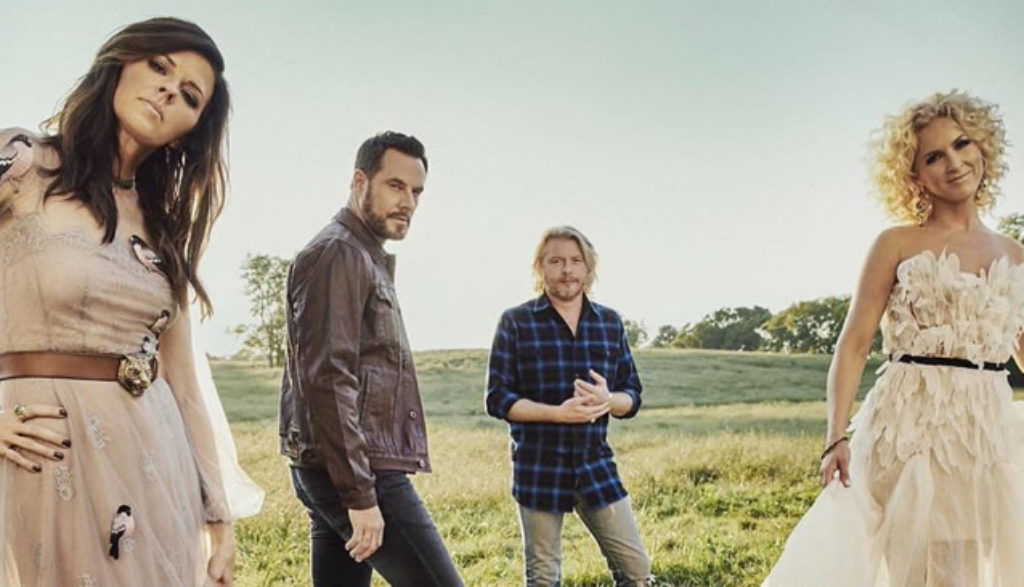
What does a woman do when happily ever after … isn’t? When her knight in shining armor devolves into something less noble and more tarnished? When soaring, fairy-tale hope descends into perpetually painful disappointment?
Country quartet Little Big Town wades into those questions in “Better Man.” And the song’s title tells us exactly what a longsuffering woman wishes her man could have been … but wasn’t.
Sometimes things don’t pan out the way we’d hoped they would. That’s the melancholy message in “Better Man.” The song tells the story of a broken relationship from the perspective of a woman looking back regretfully on the choice she’s made to leave the man she once loved.
“I know I’m probably better off on my own,” singer Karen Fairchild begins, “Than loving a man who/Didn’t know what he had when he had it.” From there, “Better Man” alternates between listing the reasons why the relationship had become unbearable and poignantly remembering better days.
Fairchild never details what the man did. But it’s clear that he was at the very least emotionally abusive, if not worse. “And I see the permanent damage you did to me,” she sings. “Never again.” Later she talks about his mercurial moods: “I know I’m probably better off all alone/Than needing a man who could/Change his mind at any given minute/And it’s always on his terms.”
She keeps hoping that maybe he’ll change, that maybe he’ll be like he was at first. But alas, no. “I’m hanging on every careless word/Hoping it might turn sweet again/Like it was in the beginning.” Then there’s his volatile possessiveness. “But your jealousy, I can hear it now/You’re talking down to me like I’ll always be around.”
She sums up their broken relationship by describing what she brought to it … and what he didn’t: “I gave to you my best, and we both know you can’t say that.” As she flirts with second thoughts in the middle of the night, she reminds herself, “You know you had to do it/I know, the bravest thing I ever did was/Run.”
Despite all that hurt and regret, though, we also hear bittersweet reminiscences and longings for the warmth and comfort of better days. “Sometimes in the middle of the night, I can feel you again,” Fairchild sings. “But I just miss you, and I just wish you were a better man/ … We might still be in love if you were a better man.”
Though the song’s lyrics never mention marriage or family, the video is set in that context. We see two couples, both of whom have children, both of whom are clearly estranged—illustrated by each individual woman walking through the countryside, sad and alone.
One vignette pictures a man, his son and, apparently, his elderly father, who’s smoking, aloof and distant. It’s not a big leap to understand, then, why we soon see the man as being distant and aloof from his wife, too. The other vignette shows a man packing, then tenderly stroking his daughter’s hair, a vacant look in his eyes. A camera shot pictures a man’s wallet, wedding ring and watch laying on a counter, implying the dissolution of a marriage.
Those images paint a nuanced story of lasting intergenerational damage. It’s suggested that perhaps one man can’t cope with the pressures of family because his own father was emotionally absent. And the other story similarly suggests the damage a man’s departure will do to his children.
Both vignettes reinforce the song’s central theme, that the end of a relationship—which certainly looks like a divorce in both cases here—is a devastating thing. Something that everyone who goes through it likely wishes could have turned out differently.
Turned out better.

After serving as an associate editor at NavPress’ Discipleship Journal and consulting editor for Current Thoughts and Trends, Adam now oversees the editing and publishing of Plugged In’s reviews as the site’s director. He and his wife, Jennifer, have three children. In their free time, the Holzes enjoy playing games, a variety of musical instruments, swimming and … watching movies.